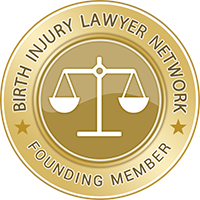High Risk Pregnancies
A pregnancy is considered high-risk if the mother and the baby are potentially in danger of having health complications in the course of gestation. Having a high-risk pregnancy, however, does not automatically mean that the mother and the baby are sure to have health problems; it only means that a woman who is having a high-risk pregnancy will get more attention and care from medical practitioners to ensure that both she and her baby will be safe and in good health. Constant monitoring will also ascertain early detection of problems which can lead to immediate medical intervention for both mother and baby.
There are many reasons why a mother may have a high risk pregnancy. There are factors that exist before the pregnancy, medical conditions that developed during the pregnancy or pregnancy-related issues that simply arise and may have nothing to do with the mother's health. Pre-pregnancy existing factors include a woman having young or old maternal age, being overweight and underweight, having had problematic previous pregnancies and pre-existing health conditions such as high blood pressure, diabetes or HIV.
Medical conditions that may develop during pregnancy and put either the mother or the baby or both at risk before, during and after the pregnancy include the following:
Preeclampsia
A syndrome wherein the mother has a high blood pressure, has problems with urinary protein and changes in blood levels of liver enzymes during pregnancy and affects the mother's kidneys, liver, and brain. If treated, mothers can still give birth to a healthy baby. If not, it puts both mother and child at risk leading to long-term health problems.
Eclampsia
A more severe form of preeclampsia that can cause the mother to suffer from seizures and coma, thus endangering the baby she is carrying.
Gestational Diabetes Mellitus
More commonly known as gestational diabetes is a type of diabetes that develops among pregnant women. It can happen to pregnant women who have never suffered diabetes before they got pregnant. With proper care and management by both the medical practitioner and the mother, the pregnancy may still be healthy and produce a healthy baby.
The pregnancy-related issues, on the other hand, include the following:
Preterm Labor
Which begins before 37 weeks of pregnancy can endanger the baby because it is not yet fully developed and may not survive outside the womb. Certain infections, shortened cervix and previous preterm birth can lead to this condition.
Multiple births
When the mother is carrying more than one baby—twins, triplets, quadruplets, etc., this increases the risk of premature labor, gestational diabetes and pregnancy-induced high blood pressure.
Placenta Previa
A condition wherein the placenta covers the cervix and causes bleeding, especially if a woman has contractions.
Fetal problems
Which can sometimes be detected on ultrasound can either be a minor or major structural problem in the baby's development while in utero.
Signs and symptoms a mother should watch out for which may indicate problems with her pregnancy are losing consciousness, severe vaginal bleeding, severe pain in the belly or pelvis, fluid gushing or leaking out of the vagina, preeclampsia signs such as the swelling of the face, hands or feet, fever, low back pain and less or no baby activity, among others.
Good nutrition, a healthy lifestyle, regular good prenatal care and medical treatment during pregnancy will be of big help in ensuring a healthy pregnancy for both mother and baby.
Find an Experienced Birth Injury Attorney in your Local Community
 Find A Lawyer in Columbus, OH
Find A Lawyer in Ohio
Find A Lawyer in Any State
Find A Lawyer in Columbus, OH
Find A Lawyer in Ohio
Find A Lawyer in Any State
